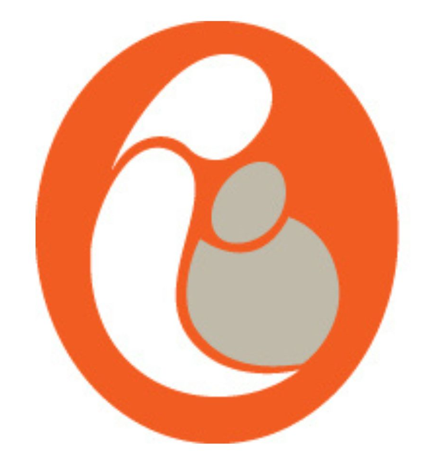Wellbeing of Women after Birth
Wellbeing of Women after Birth
- Pregnancy and childbirth are often a positive and fulfilling experience, however for some women this is not always the case. Some women might experience potential traumatic events arising from complications during the pregnancy, birth (or afterwards) which can affect them, their babies and loved ones after birth.
- The impact of such traumatic events often remains silent and at times overlooked. There is very little research that has focused on how to effectively identify women affected by them and ensure the required and adequate supports are provided.
We believe the views of those who have just undergone a pregnancy and birth, are essential to provide a clear understanding of experiences during the pregnancy, birth (or afterwards). - As part of this study, individuals attending a physiotherapy postnatal appointment will be asked to complete a short survey about their experience during pregnancy, birth (or afterwards) of their most recent baby.
- This short survey will provide information about individuals’ general health and mental wellbeing and experiences during birth (or afterwards).
- For a more complete understanding of the care provided and characteristics of the pregnancy, we are also asking to access participants’ data on socio-demographic characteristics, previous pregnancies, pregnancy characteristics, and information on adverse events or complications recorded in the hospital electronic charts (Maternal and Newborn Clinical Management System) (MN-CMS). This will provide essential information for a clear understanding of factors that might affect women’s care and wellbeing during pregnancy, birth or afterwards.
- This study will provide a better understanding of women’s experiences and enhance the supports, ensuring that individuals are provided with the care they require after birth. This research is being conducted by the National Perinatal Epidemiological Centre (NPEC) in University College Cork, based in Cork University Maternity Hospital (CUMH) with Prof. Richard Greene as the Principal Investigator and in collaboration with the Perinatal Mental Health Services, the Social Work Team.
People
- Principal investigator
Prof. Richard Greene
Consultant Obstetrician, Cork University Maternity Hospital;
Director of the National Perinatal Epidemiology Centre, Dept. Obstetrics & Gynaecology, UCC - Co-investigators
Sara Leitao
Post-Doctoral Senior Researcher, National Perinatal Epidemiology Centre, Dept. Obstetrics & Gynaecology, UCC - Paul Corcoran
Senior Lecturer in Perinatal Epidemiology, School of Public Health;
Senior Statistician, National Perinatal Epidemiology Centre - Victor Monaher
Cognitive Behavioural Psychotherapist, Social Work Team, Cork University Maternity Hospital - Liz Barry
Deputy Physiotherapy Manager, Cork University Hospital/Cork University Maternity Hospital - Dr Thomas Ryle
Senior Registrar in Perinatal Psychiatry, Cork University Hospital - Dr Eimear O’Neill
Senior Registrar in Perinatal Psychiatry, AMHS and CAMHS, Blackrock hall, Cork - Dr Richard Duffy
Perinatal Psychiatrist, Rotunda Hospital - Ursula Nagle
Advanced Midwife Practitioner
Rotunda Specialist Perinatal Mental Health Service - Emily Smith, Medical Student (student nbr 120347936)
Ruth O’Driscoll, Medical Student (student nbr 120330376)
School of Medicine, UCC
Contact information
Please contact us if you have any questions or would like more information about the study:
• Sara Leitao (Researcher: phone 021 4205 054; email: s.leitao@ucc.ie)
• Victor Monaher (Cognitive Behavioural Psychotherapist): Victor.Monaher@hse.ie
• Dr Tom Ryle (Senior Registrar in Perinatal Psychiatry): phone 0214234335, email Thomas.Ryle@hse.ie
• You can also find out more about this project at https://www.ucc.ie/en/npec/.
Further information and resources
For further information or support on perinatal or maternal mental health and wellbeing, you can visit:
• Specialist perinatal Mental Health Team (SPMT) : (https://www.hse.ie/eng/services/list/4/mental-health-services/specialist-perinatal-mental-health/ ) specialist services for pregnant women and women with a baby up to one year old who may have an existing or new mental health problem.
SPMT in CUMH: 021 423 4335
• HSE’s Your Mental Health (https://www2.hse.ie/mental-health/ ). Find advice, information and support services for mental health and well-being
• MyChild (https://www2.hse.ie/my-child/ ). Your guide to pregnancy, baby and toddler health. Trusted information from experts, Health services and support.
• Cuidiú (https://www.cuidiu.ie/ ). Caring Support for Parenthood. A parent-to-parent voluntary support charity.
• Psychological Society of Ireland (https://www.psychologicalsociety.ie/) This online voluntary directory is to help you find a psychologist who is recognised by the Psychological Society of Ireland (PSI) as being a Chartered Member of Society.
• Aware: (https://www.aware.ie ). Aware provides support & information for people who experience depression or bipolar disorder and for their concerned
loved ones. Freephone 1800 80 484.





-1.png)